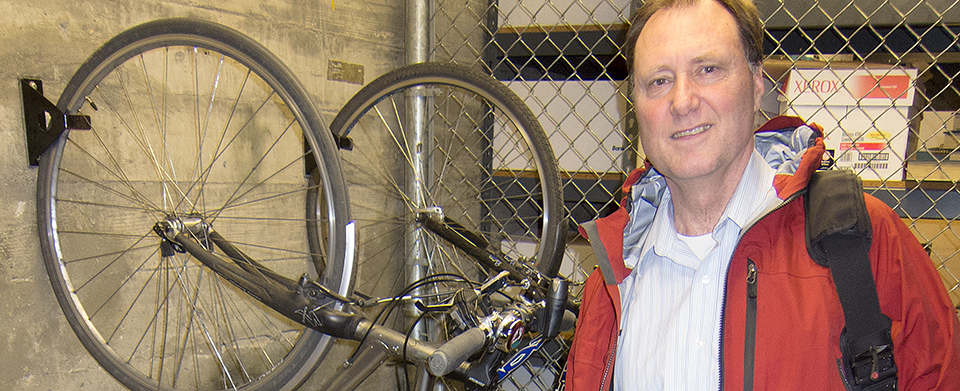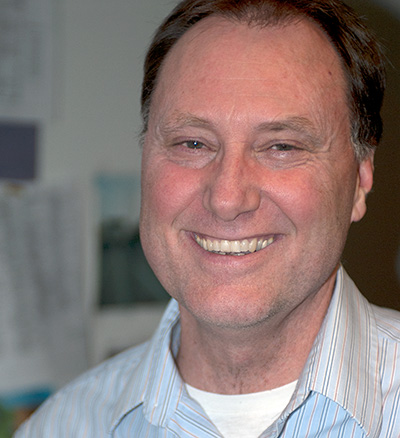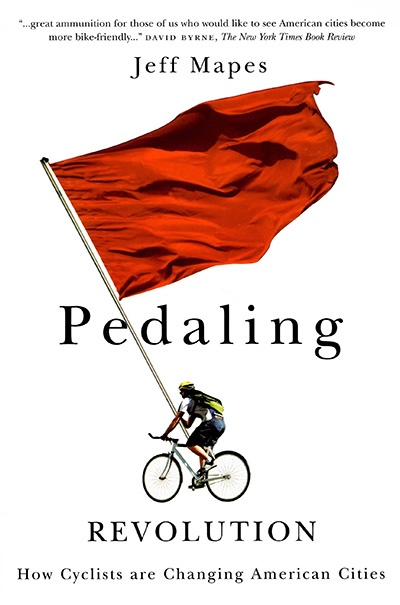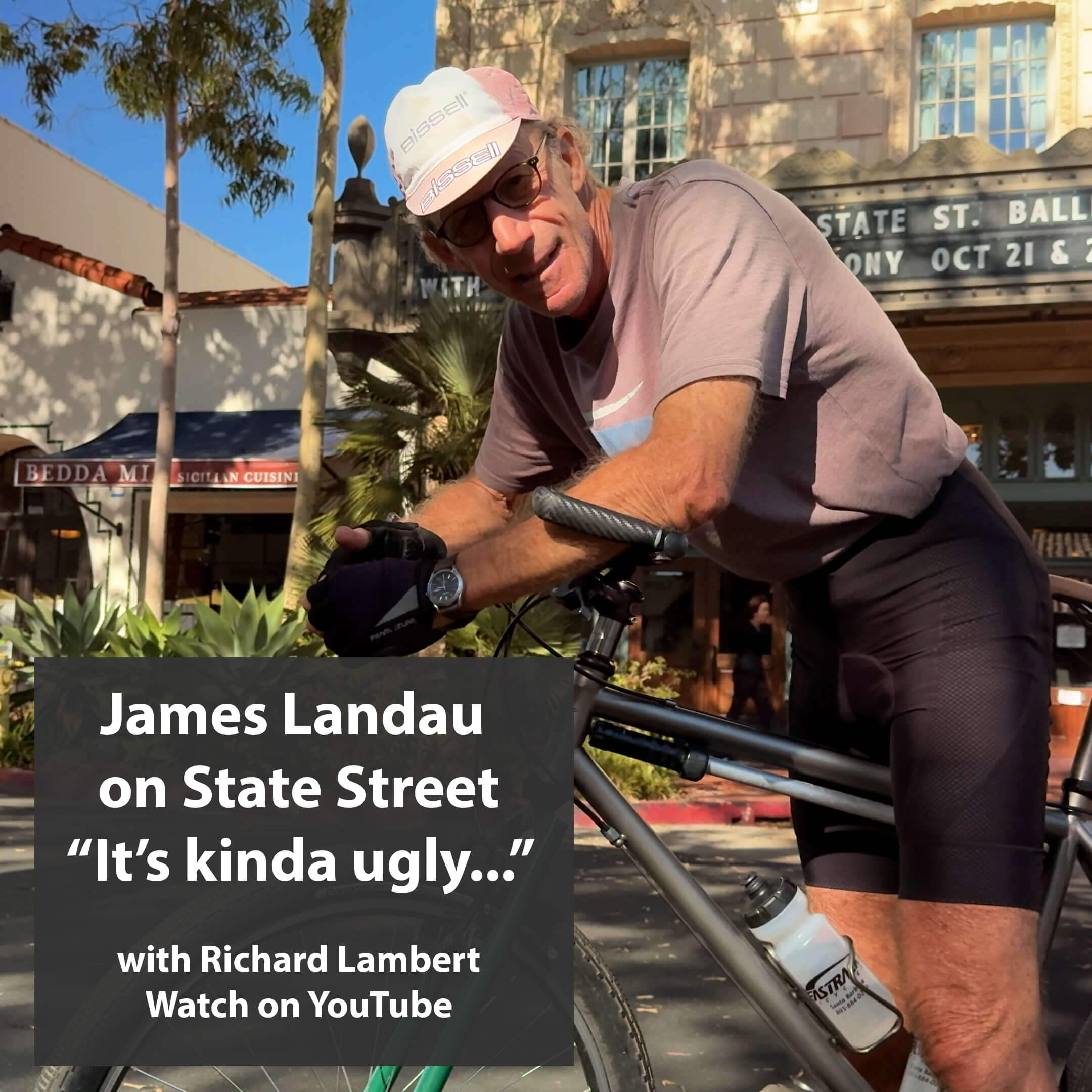I knew Bill as a member of the Las Vegas Angels and the Tech Coast…
Jeff Mapes, Pedaling Revolution
It’s not till the end of the interview, when he reminds me that David Byrne of the band Talking Heads reviewed his book for the New York Times, that it even dawns on me: where did I first hear of Jeff Mapes’ Pedaling Revolution: How Cyclists are Changing American Cities?
I read the review and ordered a copy, but I have to admit that I let it sit for a few months before I picked it up. Now I credit Jeff for turning me into the budding bike advocate I am today. Since then I’ve lent copies out to friends, never to be seen again, Charlie Gandy gave me a copy, and I’ve ordered more copies. Knowing that I’d soon meet the man in person I took out a fresh copy and started making notes in the margins as I read it for a second time.
Funny how life can be, during the week before my trip to Portland, this book gets marked up; sentences underlined and favorite passages starred while the inside covers are scribbled with clever questions I’ll ask Jeff during the interview. Then at the last minute I leave the book in my hotel room and only realize that after I get past security at the Oregonian, where Jeff writes about politics. I smile at the turn of fate and part of me knows that it’s for the best, and we sit down for what turns out to be a wide-ranging interview about his chronicles of the modern cycling movement in this country.
American cities, he covers many, but we also discuss Copenhagen where, before you can buy a car you first have to show where you can park it. “Many European cities… they have made it more difficult to drive your car in the city and as a result, that’s made other alternatives, whether it’s mass transit or bicycling, more attractive.”
Since he writes about politics, is he surprised about recent stories of push-back from New York motorists, about all the changes favoring cyclists?
Any time a movement gets big enough to attract some attention, to start affecting how things are, there is going to be push-back. Cyclists and motorists don’t always fit comfortably, cyclists and pedestrians don’t always fit comfortably, so it doesn’t surprise me that you’re going to have people starting to question… starting to say, ‘I don’t like having these cyclists, it makes me nervous having them next to me in cars…’ I very much understand that and I’ve seen it in any number of political fights I’ve covered over the decades. Sometimes I will tell bike advocates, if people are not complaining about what you are doing then that means you’re not doing anything.Jeff Mapes
Jeff describes the safety in numbers theory: no bike fatalities in Portland in 2010 and since 2000 there have been 5 years with no bike-related fatalities, even while the number of bicyclists have increased dramatically. It’s even become safer for motorists, “2010 had the second lowest amount of total traffic fatalities since they began keeping records in 1925,” according to BikePortland. When can I order up this plan for my home town?
Listen to Jeff as I wrap up this 3-part series on cycling in the Pacific Northwest. It’s a political story.
Show #15.
Podcast: Play in new window | Download | Embed
Subscribe: RSS






